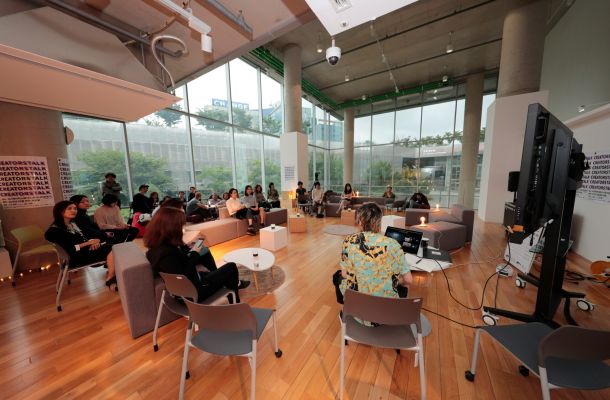
Turning the Tide
About Turning the Tide
Turning the Tide is Colorado’s statewide perinatal quality improvement initiative focused on improving outcomes for pregnant and postpartum people and their infants affected by perinatal substance use. Based upon an Alliance for Innovation on Maternal Health (AIM) Patient Safety Bundle, this 2-year, cohort-based initiative provides hospital-based teams with evidence-based tools, clinical best practices, and implementation support to enhance substance use screening, brief intervention, and referral to recovery treatment services. Turning the Tide promotes a compassionate, family-centered approach that reduces stigma by framing perinatal substance use disorder as a chronic and treatable medical condition.
Through active engagement in Turning the Tide, hospitals can meet the quality improvement requirement set by Colorado Senate Bill 24-175.
Why
Substance use during pregnancy is a growing public health concern linked to serious complications, including preterm birth, low birth weight, neonatal withdrawal, and increased risk of maternal illness or death. In Colorado, where 97% of births take place in hospitals, these care settings offer a critical window to identify and support individuals affected by perinatal substance use.
Perinatal substance use is more than a medical issue, it’s a matter of health equity. Too often, people who use substances during pregnancy face stigma, criminalization, and inconsistent care. These barriers worsen health outcomes and erode trust in the healthcare system. Turning the Tide seeks to change that narrative by supporting hospitals in delivering trauma-informed, non-punitive, and family-centered care. The initiative focuses on connecting patients with treatment and recovery supports, building coordinated systems of care, and ensuring that every person receives respectful, compassionate services that protect the health of both parent and baby.
Results
View the results of Turning the Tide here.
Hospitals participating in Turning the Tide are making meaningful improvements in care for birthing people affected by substance use. Key achievements to date include:
- Expanded universal screening for substance use during pregnancy using validated, evidence-based tools
- Stronger referral pathways and linkage to treatment and recovery supports for patients with substance use disorders
- Increased staff training on trauma-informed, non-stigmatizing, person-centered care
- Improved coordination between obstetric, pediatric, behavioral health, and social work teams to ensure seamless, wraparound support
As the initiative continues to grow, Turning the Tide is focused on advancing key measures of success:
75%
By December 2025, participating hospitals will increase the percentage of patients who screen positive for substance use and receive comprehensive care before discharge from 24% (2024 baseline) to at least 42%—a 75% increase.
Comprehensive care includes:
- A social work consultation before hospital discharge
- Receipt of or referral to recovery treatment services
- Scheduling a postpartum follow-up visit before discharge
Expand training
Participating sites will also increase the number of providers trained alongside people with lived experience and demonstrate significant improvement in provider attitudes toward perinatal substance use, as measured by pre- and post-training assessments.
Advanced Improvements for Perinatal Substance Use
Within the Turning the Tide initiative, hospitals that have met foundational program requirements, including universal screening, immediate intervention and referral to treatment, can take their work further through advanced education and hands-on technical assistance in addiction medicine and dyadic quality improvement.
This additional support enables hospitals to tailor their efforts to local needs and capacity while maintaining access to expert guidance and real-time data feedback from CPCQC’s quality improvement team.


Addiction Medicine Services
As part of the Turning the Tide initiative, hospitals can access expert support to strengthen addiction medicine services. Working with partner organizations across the state, Turning the Tide supports hospitals to expand access to medication for opioid use disorder (MOUD), manage withdrawal during inpatient care, and provide naloxone for overdose prevention.
Participating hospitals receive hands-on coaching from addiction medicine specialists and pharmacists to refine clinical workflows and improve care for pregnant and postpartum patients with substance use disorders.
Dyadic (mother-infant) Care Integration
Turning the Tide hospitals can strengthen care coordination between maternal and infant care teams through a partnership with the Colorado Hospital Substance-Exposed Newborns (CHoSEN) program. Dyadic Care Integration supports hospitals in improving care for mother-infant pairs by developing clear processes for Plans of Safe Care, aligning toxicology testing policies, and promoting safe, supported breastfeeding. Participating teams receive tailored assistance to map current workflows, gather dyadic data, and implement family-centered, equitable improvements that bridge maternal and newborn care.
Program Partners
Turning the Tide is made possible through collaboration with:
- Colorado Department of Human Services, Office of Behavioral Health
- Colorado Department of Public Health & Environment (CDPHE)
- Hospitals and health systems statewide
- Substance use treatment providers
- Parent and family advocacy organizations
- Community-based care coordinators and perinatal behavioral health specialists
Together, these partners are building a system of care that treats substance use in pregnancy not with punishment, but with support, compassion, and connection.
Related Insights


Reducing Stigma in Perinatal Substance Use Care: Training Impact Summary Now Available

